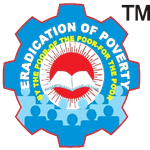Child Rights
A Pathway to Poverty Eradication
Access to Education: Every child has the right to quality education. By ensuring access to education for all children, regardless of their socioeconomic background, we empower future generations with the knowledge and skills to break the cycle of poverty.
Healthcare and Nutrition: Child rights include the right to health and adequate nutrition. By providing access to healthcare services, immunizations, and nutritious food, we ensure that children grow up healthy and resilient, laying the foundation for a productive and prosperous future.
Protection from Exploitation and Abuse: Children have the right to be protected from exploitation, abuse, and violence. By strengthening child protection systems and enforcing laws against child labor, trafficking, and abuse, we create safe environments where children can thrive and reach their full potential.
Equal Opportunities: Every child deserves equal opportunities to succeed. By promoting gender equality, inclusive education, and non-discriminatory policies, we ensure that all children, regardless of their gender, ethnicity, or socioeconomic status, have the chance to fulfill their dreams and aspirations.
Family and Community Support: Strong families and supportive communities are essential for children's well-being. By investing in social protection programs, family support services, and community-based initiatives, we strengthen the social safety net for vulnerable children and families, preventing them from falling into poverty and ensuring their rights are upheld.
Participation and Voice: Children have the right to participate in decisions that affect their lives. By listening to children's voices, empowering them to express their opinions, and involving them in decision-making processes, we foster a sense of agency and ownership, empowering children to advocate for their rights and contribute to positive change in their communities.
Investment in Early Childhood Development: The early years of a child's life are critical for their development. By investing in early childhood development programs, including nutrition, healthcare, and early learning opportunities, we lay the foundation for lifelong success and break the intergenerational cycle of poverty.
Education for Sustainable Development: Education plays a vital role in promoting sustainable development and environmental conservation. By incorporating environmental education and sustainable practices into school curricula, we empower children to become responsible global citizens who can contribute to building a more sustainable and equitable world.


Child Rights Contribute to the Eradication of Poverty:
Education Access: Every child has the right to go to school, which helps them learn skills to escape poverty.
Healthy Start: Children deserve good healthcare and nutrition to grow strong and avoid falling into poverty due to illness.
Protection from Harm: Keeping children safe from exploitation and abuse helps prevent situations that can lead to poverty.
Equal Opportunities: All children should have the same chances, no matter where they come from, to break free from poverty.
Supportive Communities: Building strong communities that care for children helps ensure they have the support they need to thrive and succeed.
Listening to Children: Listening to children’s voices and opinions helps us understand their needs better and create solutions that work for them.
Investing in Early Years: Investing in children’s early years sets them up for success later in life and helps break the cycle of poverty.
Teaching Sustainable Practices: Teaching children about sustainability and environmental conservation ensures they can contribute to a world where poverty is less prevalent in the future.
